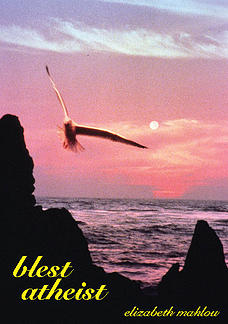Excerpt from Blest Atheist (Mahlou): Beginning of Chapter 1 (The Church in Siberia)
“Khristos voskres” (Christ is risen). One person after another greeted me with these words as I climbed the stairs of the little, wooden church in Akademgorodok, a tiny town at the end of the man-made Ob Sea, bejeweling the Siberian steppe 45 minutes south of the city of
“V istinu voskres” (Truly, He is risen).
If my words of response rang hollow, there was a reason. They came from the
lips of a bona fide atheist, convinced that religious congregations were
at least in part delusional. Certainly, they contained well-meaning folks, ones
often with great compassion, but nonetheless, in my opinion at that time, delusional.
Raised in a so-called Christian home and an attendee, but not engaged
participant, in Methodist and Baptist churches in my early years, I found no
sense in the sermons of the ministers who were often more interested in
tangible things than in holy deeds, no examples set by the deacons who were
often bedding the wives of their friends, and no love of God in the raspberry
switches wielded by my parents that demanded their few ounces of blood every
Sunday before we marched into church as a model family. God, to me, was a
fantasy, created by evil-doers to make themselves feel better. When given a
chance at the age of 16 to preach the Youth Sunday sermon, the topic of which
was “The Christian Home,” I pointed out all of these things, to the great
discomfort of the congregation. I concluded that sermon with the suggestion that
considerable thought should be given to the advantages of raising a child
without hypocrisy, i.e. in an atheistic environment. So ended my churchgoing
days. Until now.
Now I was about to address another
church congregation. It was the first time in 30 years I would speak to such a
gathering. My family had been asked to leave the church and never return
because of my youth sermon. Thus, I had spent the rest of my growing-up and
adult years in the atheistic environment I had exalted back then.
Speaking the words of greeting as I
mounted the steps to the vestibule of the church was not uncomfortable; they
were, after all, meaningless to me. While I would have preferred another form
of greeting, I had somehow managed to end up at this impressively humble Russian
Orthodox Church on Easter morning. So, the greetings were to be expected.
As I reached the top of the stairs,
a priest extended his hand. As I had been taught in advance to do, I kissed it.
The priest smiled and said, “There is no need to follow our customs. I have
been told that you are an atheist. I’m Father Grigoriy, and I am very happy to
meet you at long last. I do need, though, to find some way to introduce you to
the congregation. I have given this some thought and wonder if I may introduce
you as a Good Samaritan?”

Read the whole story in Blest Atheist.
Read more posts by and about Elizabeth Mahlou HERE.



Comments
Post a Comment